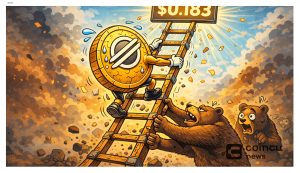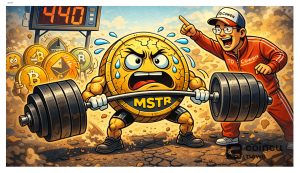Blockchain technology has revolutionized many industries, including finance, supply chain management, and healthcare. One of the key innovations in the blockchain space is the introduction of governance tokens. So, what exactly are governance tokens and how do they work?
A governance token is a unique type of token developed by blockchain developers to empower token holders in shaping the future of a protocol or decentralized platform. By possessing governance tokens, individuals possess the capability to influence various decisions concerning the project. This includes proposing and determining new features, as well as making alterations to the governance system itself.
In the world of blockchain and cryptocurrencies, governance is typically achieved through decentralized autonomous organizations (DAOs). DAOs are organizations that operate on smart contracts and allow users to have a say in the decision-making process. Governance tokens play a vital role in these DAOs, as they provide the voting power needed to participate in decision-making.
One of the main benefits of governance token systems is the ability to align with the principles of decentralization and democratization. Unlike traditional centralized systems where decisions are made by a select few, governance tokens give every token holder an equal opportunity to voice their opinions and influence the project’s direction.
Let’s look at an example to understand how governance tokens work in practice. Maker (MKR) is a well-known governance token in the blockchain space. It is used in the MakerDAO project, which operates the decentralized stablecoin DAI.
Holders of MKR possess the ability to vote on decisions related to the decentralized finance (DeFi) protocol that governs DAI. For example, MKR holders can vote on modifying the intricate economic rules that support DAI’s price stability. They can propose changes, discuss them with the community, and vote to approve or reject them. This democratic process ensures that decisions are made collectively and transparently.
But how are these votes conducted? In many cases, governance tokens enable on-chain governance, which means that the voting process takes place directly on the blockchain. Smart contracts are used to automate the voting process, making it efficient and transparent. The voting results are then executed automatically through the smart contract.
However, there are instances where the project team responsible for the governance token is accountable for implementing the approved changes. Alternatively, they may choose to hire someone to carry out the necessary modifications. This ensures that the decisions made by token holders are effectively implemented.
The power of governance tokens extends beyond making decisions about protocol features. They can also influence the governance system itself. For example, token holders might propose changes to the voting mechanisms, quorum requirements, or token distribution models. This flexibility allows the governance system to evolve and adapt to the changing needs of the community.
Governance tokens are not limited to just one project or protocol. Many blockchain platforms and decentralized applications (DApps) have their own governance tokens to empower their communities. These tokens enable users to actively participate in the decision-making process and contribute to the project’s success.
It’s important to note that governance tokens come with responsibilities. As a token holder, it is essential to stay informed about the project, its proposals, and the potential impact of your votes. By actively participating in the governance process, you can help shape the future of the project and contribute to its long-term success.
In summary, governance tokens are a revolutionary concept in the blockchain world that allow token holders to have a say in the decision-making process. By possessing governance tokens, individuals gain the power to propose, discuss, and vote on various decisions related to the project or decentralized platform. This democratic approach aligns with the principles of decentralization and gives every token holder an equal opportunity to shape the future of the project.
Whether it’s voting on protocol changes, modifying the governance system itself, or contributing to the success of a project, governance tokens play a crucial role in empowering the community. As blockchain technology continues to evolve, governance tokens will likely play an increasingly important role in ensuring the decentralized and democratic nature of blockchain-based systems.














